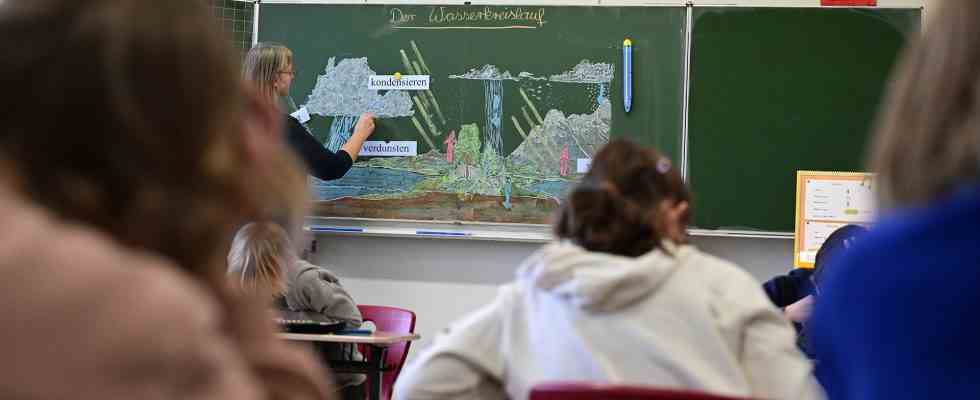Status: 03/14/2023 11:20 a.m
In cities like Cologne there is a lack of places in secondary schools. The few that exist will be awarded by drawing lots. If you are unlucky, you have to put up with the journey to school of up to three hours. Parents are outraged.
“You are left completely alone with the situation,” says Maria Barbara Lübbering. She is 31 years old, a single mother in Cologne and disappointed. She’s in the middle of her legal clerkship and now she’s getting bad news for her ten-year-old daughter after bad news: Sofia was rejected by the nearby high schools in Cologne, they say the schools are full. “That puts me in a situation where I’m really worried. It makes me angry,” says the young mother.
A total travel time of three hours is reasonable for schoolchildren in NRW. Lübbering criticizes: “They seem to have no idea what such decisions and resolutions ultimately mean for our reality and our everyday lives.”
A huge burden
She worries before the start of the school year in secondary school. “I don’t know how it’s supposed to work with going back and forth by bus and train every day.” You have to be at work at a certain time and stay there until a certain time. The long way to school would be a huge burden for the small family and the victim would be ten-year-old Sofia.
“I feel powerless”
Another mother from Cologne reports similar problems. She doesn’t want to give her name. “I haven’t slept properly since my son’s school was canceled and I’m in a panic. My son is sad and no longer understands the world,” she reports. “I feel powerless. The city knows the problems and recommends private schools and neighboring communities as serious alternatives.” You can no longer choose, you can only hope to get a place at all.
These are two cases of disappointed parents who cannot find a school place for their children. And unfortunately not an isolated case, reports Olaf Wittrock. He is a co-founder of the “The Rejected” initiative and a journalist. “You could easily fill ten more schools with the rejected children at the secondary schools alone. But they don’t exist,” criticizes Wittrock.
Hundreds of school places are missing in Cologne alone
According to Wittrock, there have been hundreds of school places missing in Cologne for years, especially at comprehensive schools and grammar schools, but recently also at primary schools. Hundreds of first graders would not have gotten a place at the nearest elementary school.
School construction must be much faster, as must renovations. “It’s going much too slowly. The children in question are already six years old before they go to school. That’s enough lead time, one might think,” says Wittrock. In the end, the majority of schools let the lot decide who gets a place. “The whole process is full of injustices. In the end, everyone is a loser.”
Smart distribution mechanisms needed
A problem that Gerhard Brand has been drawing attention to for a long time. He is the national chairman of the Education and Training Association. “Especially in urban areas and with particularly popular schools, the school wishes can often no longer be realized,” confirms Brand. “Smart distribution mechanisms are needed to ensure that children do not have to drive for hours across the country to get to secondary school.”
The shortage of teachers is the central problem for the education system. There are very different figures on how big the shortage actually is. According to the state ministries of education, there are currently 12,000 vacancies for teachers. The German Teachers’ Association speaks of 32,000 to 40,000 vacancies.
Gaping staff gap
The Education and Training Association conducted a representative opinion poll among school administrators. Based on the answers, it was calculated that at the beginning of the 2022/23 school year there was a shortage of 50,000 teachers in schools in Germany. “Those currently working in schools are extremely committed to keeping together the gaping gaps in staffing levels,” says Brand. If they can’t be offered any perspective that things will get better again, it will become increasingly difficult to motivate them in the long run.
“We urgently need noticeable relief from administrative work and everything that does not relate to the original lessons in order to make school attractive again as a place of work,” he demands. Otherwise the parents and children could not be helped either.
The affected parents, like Maria Barbara Lübbering, also want a solution: “The decision as to which school the child attends is an important signpost that we can still set,” says the young mother from Cologne. “The fact that this signpost was just ripped out of our hands is a nasty feeling.”

